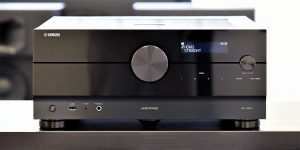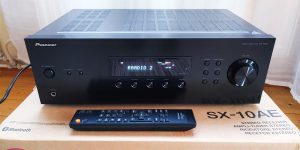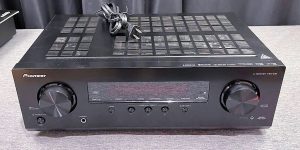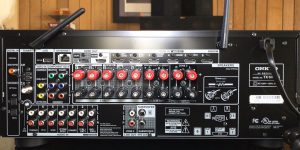So, you are building a home entertainment system? I remember when I made a life-changing decision to do the same. I wish, back then, I knew everything I know now. Then I would definitely manage to buy a proper home theater amplifier. But, the good news is that it is not too late for you! AV receivers and amplifiers are pretty close to one another, yet they are very different. In this article, I will cover all those differences and highlight their main pros and cons.
What is an amplifier?
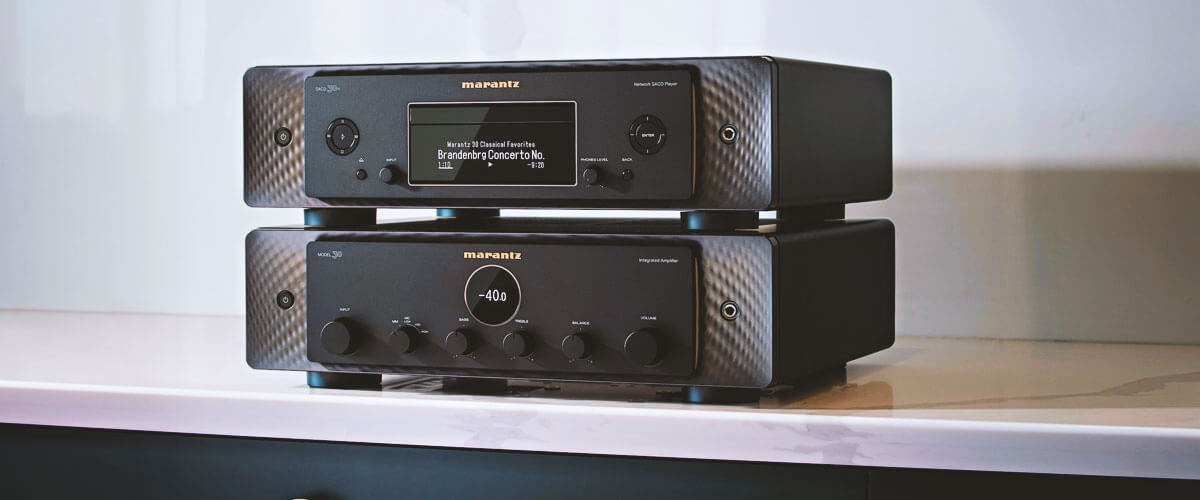
An amplifier serves to boost the sound level to drive speakers. There are two types of home theater amplifiers: preamplifiers and power amplifiers. The first one receives the signal from the source device and does the initial amplification. Also, it takes sound control features and regulates which device delivers sound to your speakers.
An interesting aspect is that the preamplifier cannot drive speakers by itself. That’s why there are also power amplifiers. They receive already preamplified to a certain threshold sound and then do the major amplification before sending the signal to the speakers. Simply put, a preamplifier is responsible for sound control and connecting your source device with your sound system. A power amplifier is responsible for the sound quality and volume level.
What is a receiver?
A receiver is a device that connects directly to the sound source and your speakers. It has various control features onboard, allowing for the creation of home theater setups with immersive surround sound. In addition, many modern receivers support 8K video, multi-room systems, streaming, game functions, etc. It is much easier to create a home entertainment system with a receiver as it is an all-in-one solution. A basic setup may consist of a TV, any gaming console, a 5.1 AV receiver, and 5.1 speakers.
Stereo receivers
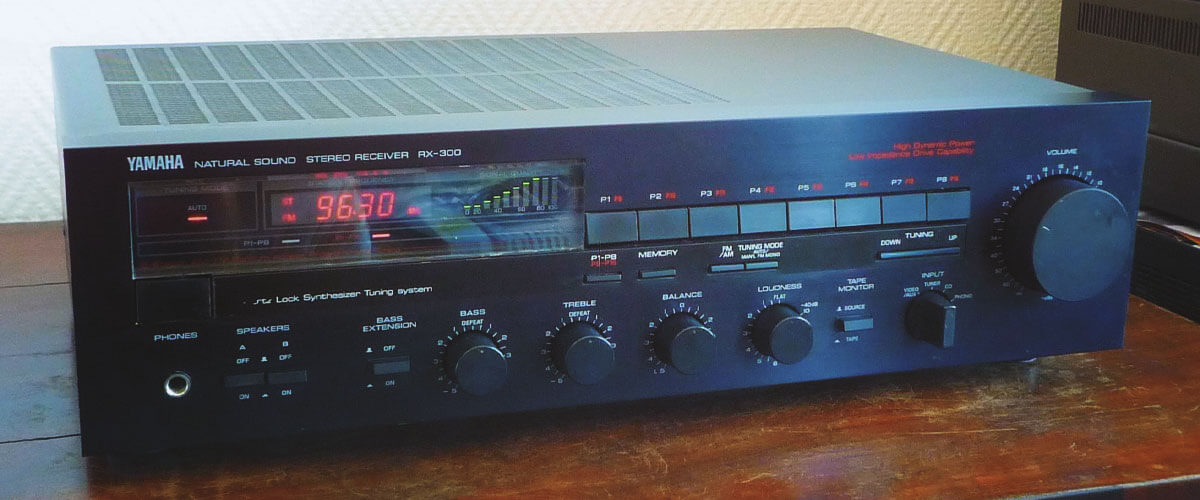
As goes from its name, stereo receivers support only up to two sound channels. This type of receiver is suitable for listening to music. It can be much cheaper than a pre+power amplifier setup while offering more or less the same sound quality with extensive control over the sound sources. At the same time, in terms of functions, it is inferior to AV receivers since it is mainly focused on music. And here, you can check the best stereo receivers.
AV receivers
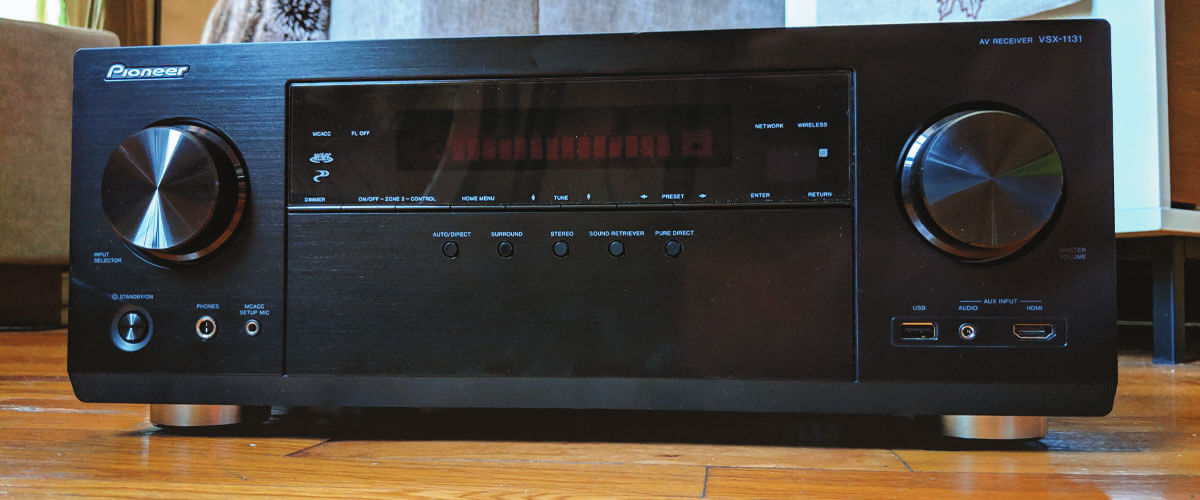
The abbreviation AV stands for Audio and Video. AV receivers come with built-in support for sound and video signals. Therefore, you can use it to connect multiple audio and video sources to the same set of speakers. Plus, it has video outputs allowing you to connect it to an additional TV.
Receiver vs. amplifier: which one should I choose?
Now, when you know the basic difference between an amplifier and a receiver, the time has come to draw a clear line and make a final decision. Which of these devices is better to choose for your home entertainment system? The answer is completely dependent on what you are expecting to get from the device. An amplifier can be a great choice if you are focused on sound quality. Dedicated pre and power amplifiers allow reaching astonishing sound quality levels. Plus, setup with amplifiers is going to be much easier to upgrade.
On the other hand, if you are a fan of modern streaming services, internet radio, watching movies, and gaming, you may better choose an AV receiver. A single unit takes way less space while still offering decent sound quality. Furthermore, this may be the only solution if you have limited space in your place.
So, the choice, in fact, lies between two entities: getting the best sound quality for the available budget or getting versatility in terms of functions, control, and possible setups of your home entertainment system.
AV receiver pros and cons
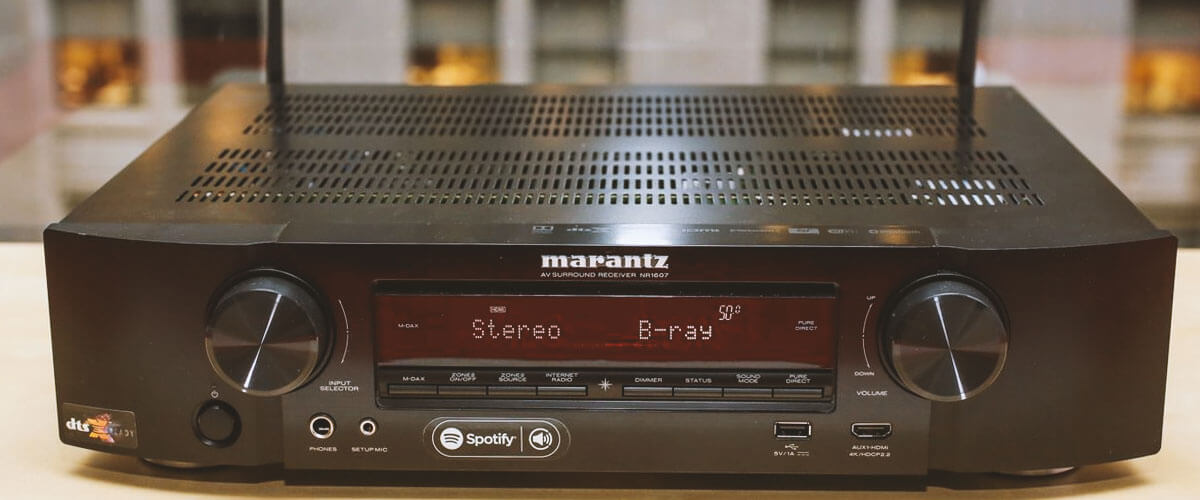
An AV receiver seems the easiest and the most convenient choice, considering its widely versatile features. To help you make the decision, I will share the pros and cons of a receiver compared to a home theater amp.
Pros
- Connectivity
An AV receiver almost always comes with a broad number of various connectors, allowing it to connect to multiple sources and target devices.
- Setting up is easier
With an AV receiver, you won’t have to puzzle over space and cable management. Separate amplifiers are way harder to set up in terms of space and managing all those wires.
- Streaming capabilities
AV receiver is, in fact, the only option when it comes to using streaming services, whether audio or video.
Cons
- Misleading power output
With AV receivers, it is hard to understand how much power your receiver can deliver to your speakers. Manufacturers often mention single or two-channel driven power, which doesn’t give a clear picture.
- No upgrade
The only upgrade you can do is to sell or throw away your old receiver and buy a new one. Yep, limited flexibility as it is.
Amplifier pros and cons
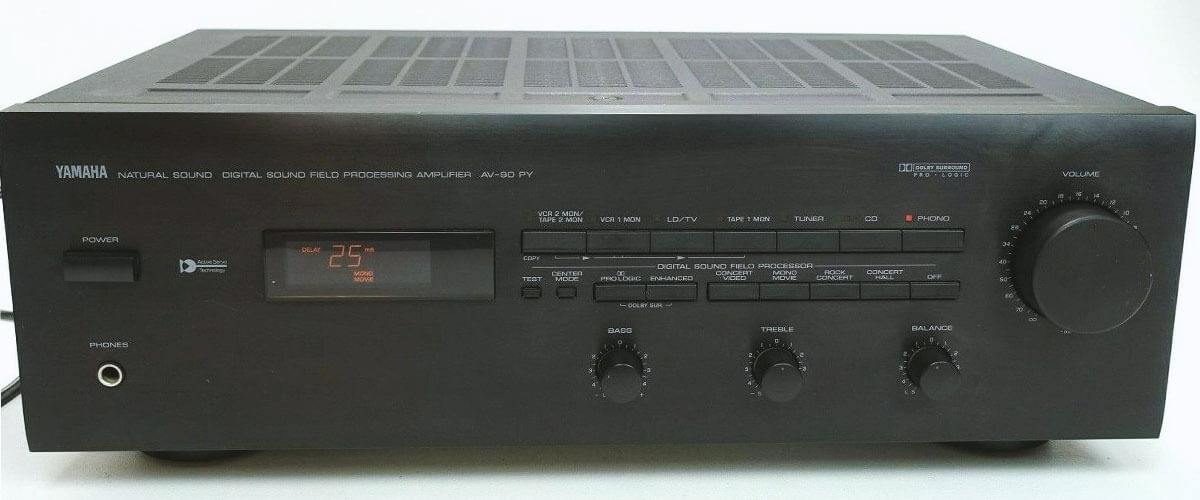
Let’s take a closer look at the reasons you may want to make an amplifier the heart of your home entertainment system. And, of course, to make the receiver vs. amplifier battle equal, I will also highlight the major cons of this solution.
Pros
- Sound quality
The main reason amplifiers exist is to deliver a quality sound to your ears. Therefore, when buying an amplifier, you can expect it to offer the best possible sound available for your money.
- Honest parameters
You get a clear picture of how many watts of power you get for your speakers. Thus, choosing suitable speakers and vice versa has never been easier.
- Modular
You can upgrade or repair any component. No need to change the whole heart of your sound system.
Cons
- Prepare your place
Decided to get an amplifier? Make sure you have planned where you are going to put it. Finding a space for two different boxes (pre and power amplifier) may not be an easy task, especially if you want to make everything look clean and neat.
- Limited functionality
You pay for the sound quality, and you get it. No more, no less.
We are supported by our audience. When you purchase through links on our site, we may earn an affiliate commission at no extra cost to you.
Our newsletter
* We will never send you spam or share your email with third parties

![Best Budget Receivers [Reviewed and Tested]](https://thetechholics.com/wp-content/uploads/2023/10/best-budget-av-receiver-300x150.jpg)
![Best 9-Channels AV Receivers [Reviewed and Tested]](https://thetechholics.com/wp-content/uploads/2023/10/best-9-2-receiver-300x150.jpg)



![Pioneer vs Denon Receivers [Top Models Compared and Tested]](https://thetechholics.com/wp-content/uploads/2023/10/denon-vs-pioneer-review-300x150.jpg)
